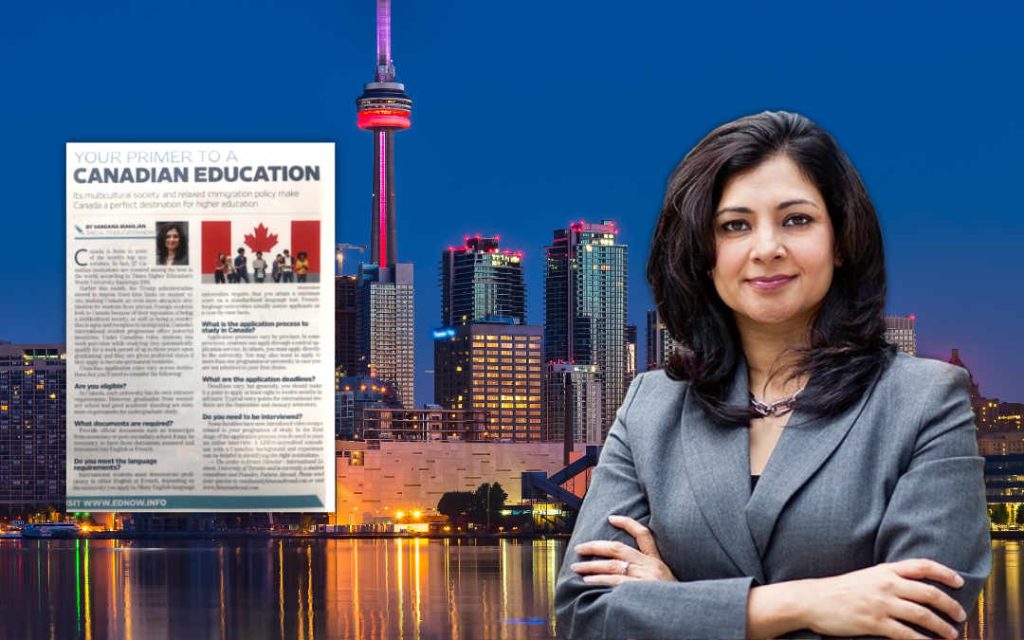Your primer to a Canadian education

Canada is home to some of the world’s top universities. In fact, 27 Canadian institutions are counted among the best in the world, according to Times Higher Education’s World University Rankings 2019.
Earlier this month, the Trump administration moved to impose fixed time limits on student visas, making Canada an even more attractive destination for students from abroad. Foreign students look to Canada because of their reputation of being a multicultural society, as well as being a country that is open and receptive to immigration.
Its multicultural society and relaxed immigration policy make Canada a perfect destination for higher education.
Canada’s international student programmes offer powerful incentives. Under Canadian rules,
- students can work part-time while studying:
- they automatically qualify for a work permit of up to three years upon graduating:
- and they are given preferred status if they apply to become permanent residents.
Canadian application rules vary across institutions, but you’ll need to consider the following:
Are you eligible?
In Canada, each university has its own entrance requirements. However, graduation from secondary school and good academic standing are minimum requirements for undergraduate study.
What documents are required?
Provide official documents such as transcripts from secondary or post-secondary school. It may be necessary to have those documents assessed and translated into English or French.
Do you meet the language requirements?
International students must demonstrate proficiency in either English or French, depending on the university you apply to. Many English-language universities require that you attain a minimum score on a standardized language test. French-language universities usually assess applicants on a case-by-case basis.
What is the application process to study in Canada?
Deadlines vary, but generally, you should make it a point to apply at least eight to twelve months in advance. Typical entry points for international students are the September and January semesters.
Do you need to be interviewed?
Some faculties have now introduced video essays related to your programme of study. In the final stage of the application process, you need to pass an online interview. A KHDA-accredited consultant with a Canadian background and experience can be helpful in identifying the right institutions.
This article by Vandana Mahajan was first published in Education Now.
Vandana is a former Director-International Liaison, University of Toronto and is currently a student consultant and Founder, Futures Abroad. Please send your queries to vandana@futuresabroad.com.











Hi
My name is Asif. I m originally from Pakistan. Currently I am a resident in Bahrain and working as a chief Accountant in a large construction company for the last 10 years. Now I want to complete my higher education in Canada. I want to consult regarding possible oppertunities in this reagard.
Please share your contact details so we can explain the process